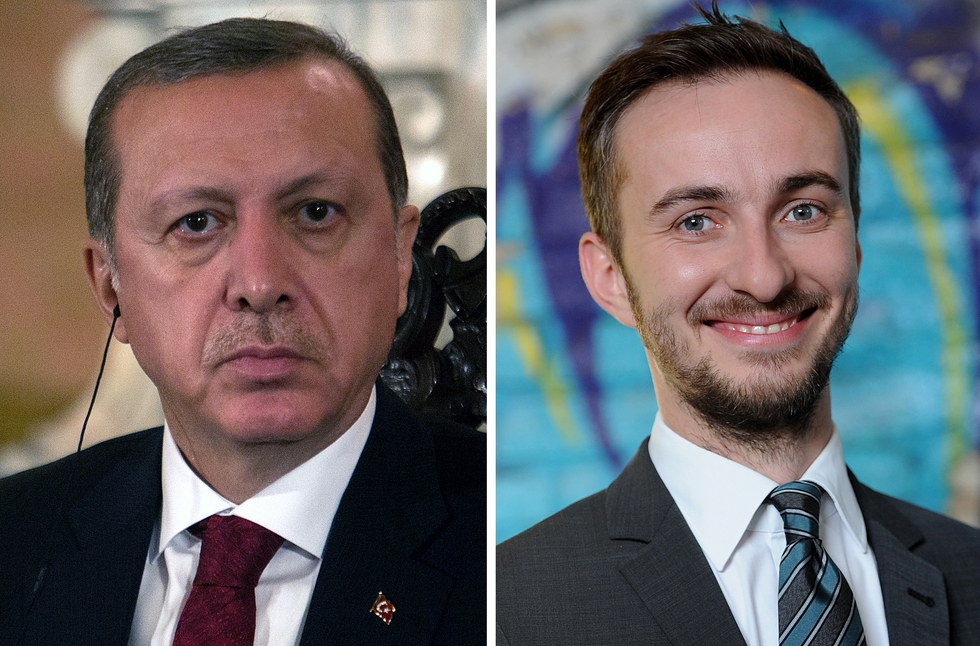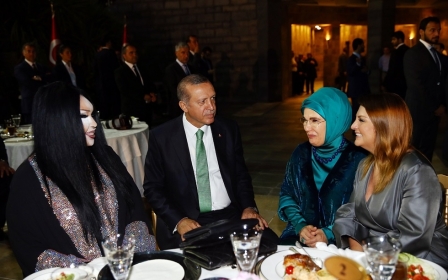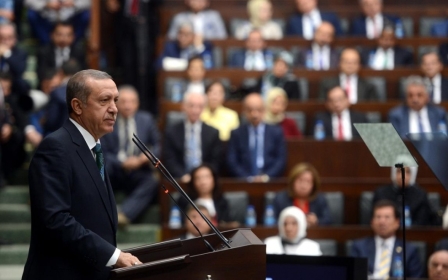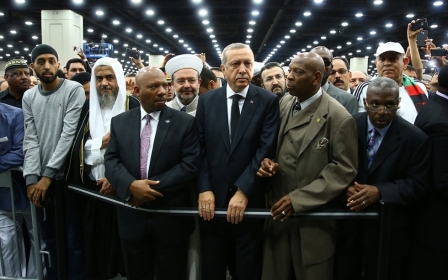Erdogan loses appeal against German media chief over goat poem

Turkey's President Recep Tayyip Erdogan lost a German court battle against a senior media executive on Tuesday when his appeal in a bitter row over free speech was thrown out.
Erdogan had sought a court order to stop Axel Springer media group's chief Mathias Doepfner from repeating his support for a TV satirist who read a poem on national television in late March, accusing the Turkish president of having sex with goats and sheep and watching child pornography.
After failing to get an injunction from a lower court last month, Erdogan also lost an appeal before the higher regional court in the western German city of Cologne.
The judges in Cologne said they considered Doepfner's letter of support - published in one of the Springer group's newspapers in April - as "a permissible expression of opinion as protected under Article 5" of Germany's constitution, the court said in a statement.
In the letter, Doepfner took Jan Boehmermann's side, declaring: "For me, your poem worked. I laughed out loud."
The comedian's recital of his so-called "Defamatory Poem" sparked a diplomatic firestorm and a row over freedom of expression.
During the broadcast, Boehmermann gleefully admitted his poem flouted Germany's legal limits to free speech and was intended as a provocation.
In a controversial move, Chancellor Angela Merkel authorised criminal proceedings against him after Turkey requested that he be prosecuted for defamation.
Erdogan has previously said that he is not at war against Turkey's media and draws a distinction between freedom of expression and what he described as caricature.
“The press in Turkey had been very critical of me and my government, attacking me very seriously. And regardless of those attacks, we have been very patient in the way we have responded to those attacks,” Erdogan told CNN in early April.
“Satire, whether it is satire or not, everything has to have boundaries. A simple caricature, a simple sketch - that’s fine. There’s nothing wrong with that. But if you draw a caricature ... and if you associate that subject with the things you’re not supposed to, then, of course, you can’t expect that to be acceptable,” he said.
Since becoming president in 2014, almost 2,000 lawsuits have been opened against people in Turkey for insulting Erdogan. Under Article 301 of the Turkish constitution, insulting the president of Turkey is a criminal offence.
Donald Tusk, the president of the European Council, said in late April that Erdogan needed to grow a "thick skin."
“The line between criticism, insult and defamation is very thin and relative, and the moment politicians decide which is which can mean the end between freedom of expression, in Europe, in Turkey, in Africa and Russia, everywhere," he said.
Despite the court ruling on Tuesday, Erdogan can still seek recourse before Germany's top tribunal, the Federal Constitutional Court.
New MEE newsletter: Jerusalem Dispatch
Sign up to get the latest insights and analysis on Israel-Palestine, alongside Turkey Unpacked and other MEE newsletters
Middle East Eye delivers independent and unrivalled coverage and analysis of the Middle East, North Africa and beyond. To learn more about republishing this content and the associated fees, please fill out this form. More about MEE can be found here.




